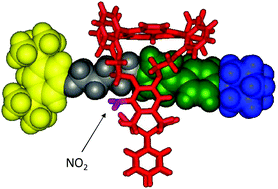The development of synthetic catalysts that has parallel enzymatic efficiency in terms of rate and turnover is still a challenge in chemistry. The de novo design of a biochemical system in a molecular matrix is fascinating and challenging for future synthetic catalysis. We recently used a non-covalent interaction approach to create nano-sized artificial enzymes for the size, shape, stereo, and enantio-selective synthesis of small molecules and polymers.
Monday, December 24, 2018
Artificial polymerases
Subscribe to:
Posts (Atom)
